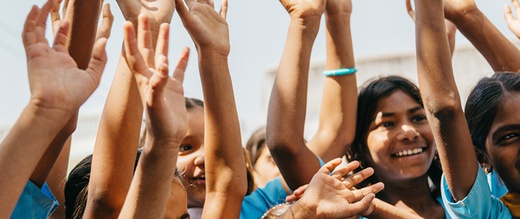The burgeoning economic landscape of modern India presents an intriguing conundrum: How can a nation characterized by its vast economic disparities forge a new economic model that is equitable, sustainable, and reflective of the Baha’i principles? This question invites contemplative discourse on the integration of spiritual values into economic practices, a theme deeply embedded in the teachings of the Baha’i Faith.
At the core of Baha’i teachings lies the principle of the oneness of humanity, which posits that all individuals, regardless of their socio-economic status, are entitled to dignity and respect. This fundamental belief necessitates an economic framework that not only addresses the disparities but also cultivates a sense of collective responsibility. As the Indian economy grapples with multifaceted challenges such as poverty, unemployment, and environmental degradation, a comprehensive reevaluation of prevailing economic paradigms is imperative.
In contemplating the need for a new economic model, one must consider the defining characteristics of an economy that aligns with Baha’i ethics. Firstly, the model must prioritize the welfare of the collective over individualistic pursuits. This implies the establishment of policies that promote inclusive development rather than mere economic growth. For instance, programs aimed at empowering marginalized communities through education and vocational training could significantly enhance their capacity to contribute meaningfully to the economy.
Secondly, a Baha’i-inspired economic framework must intrinsically value honest and ethical practices. Corruption and malfeasance erode public trust and lead to systemic inequities. Therefore, fostering transparency and accountability within economic systems is paramount. Creating robust institutional frameworks that encourage ethical entrepreneurship, fair trade, and equitable labor practices could pave the way for a more harmonious economic environment.
Furthermore, environmental sustainability must be a cornerstone of any new economic model in India. The challenges posed by climate change necessitate an economic approach that embraces renewable resources and sustainable practices. Aligning economic activities with ecological stewardship can not only mitigate environmental degradation but also foster new sectors within the economy, such as green technology and sustainable agriculture. Baha’i teachings emphasize the unity of science and religion; thus, adopting scientific innovations to address environmental issues aligns with this principle.
Integral to the discourse on a new economic model is the role of education. The Baha’i Faith underscores the transformative power of education as a tool for personal and societal advancement. An economic framework committed to fostering a well-educated populace will invariably lead to greater innovation and productivity. Inclusive educational initiatives—particularly those targeting women and girls—are crucial in dismantling barriers to participation. When every individual is equipped with knowledge and skills, the economic potential of the nation is exponentially amplified.
However, the journey toward a new economic model is fraught with complexities. One might ponder: Can it be achieved in a society deeply entrenched in traditional economic practices and mindsets? This is where the challenge lies. Engaging communities in dialogues about the necessity of reform and showcasing the tangible benefits of adopting a Baha’i-inspired economic ethos are vital. The transition must be approached not merely as a theoretical endeavor but as a practical, community-driven initiative.
Additionally, the challenge of integrating spiritual values into economic policies necessitates the collaboration of various stakeholders, including government entities, civil society organizations, and the private sector. A participatory approach, which involves constituents at every level, can foster a sense of ownership and commitment to the envisioned economic transformation. Workshops, seminars, and community forums can serve as platforms for dialogue, enabling the exploration of challenges and the co-creation of solutions.
Another pertinent consideration is the globalized nature of the modern economy. India is not isolated; it operates within a complex web of international trade and economic policy. Developing a new economic model will require not only internal reforms but also an astute understanding of global dynamics. The Baha’i principle of service to humanity can guide international collaboration, ensuring that India’s economic policies contribute positively to the global community.
As discussions progress, one cannot overlook the myriad of potential outcomes from implementing a new economic model. Will it spur genuine equality, foster innovation, and maintain harmony with nature? Or will it succumb to the pitfalls of previous models, resulting in superficial changes that fail to address systemic issues? The imperative of critical reflection and adaptive learning is paramount; continuous evaluation and responsiveness to emerging circumstances will be crucial.
Ultimately, the vision of a new economic model in India through the lens of Baha’i teachings beckons a holistic approach that encapsulates ethical integrity, inclusivity, and sustainability. The dynamic interplay between spiritual values and economic realities necessitates a commitment to exploring innovative paradigms that nurture both individual and collective advancement. As India embarks on this transformative journey, the aspiration remains: to foster an economy that not only thrives but also uplifts the human spirit and honors the sanctity of life.
